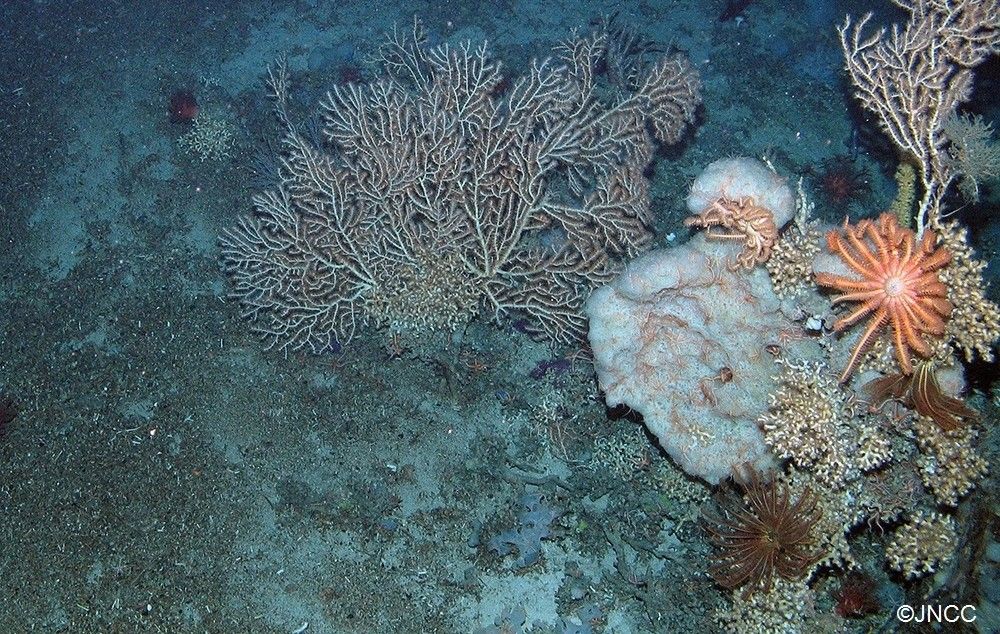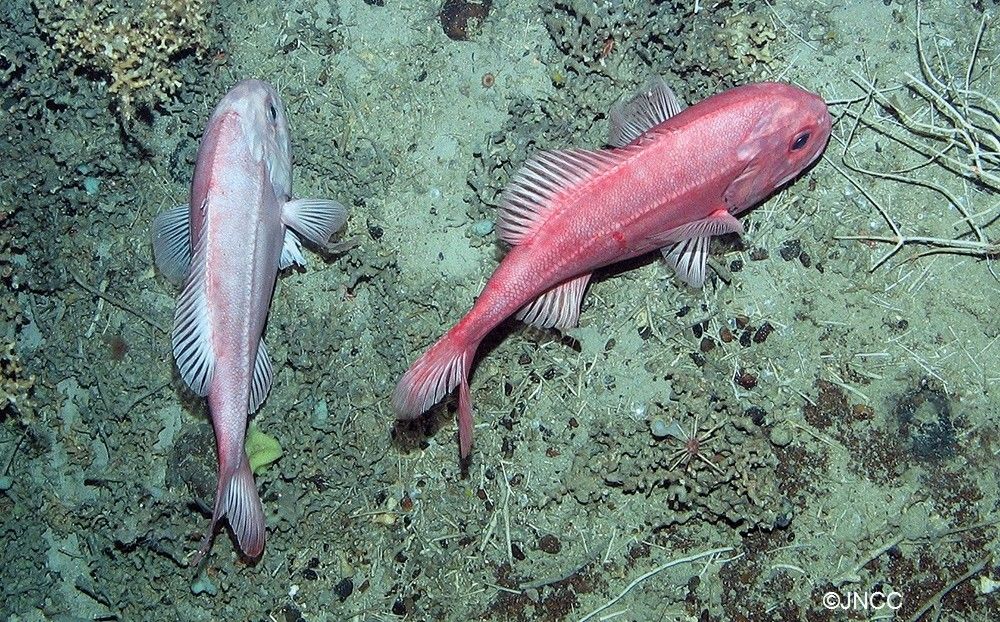Joint Nature Conservation Committee (JNCC)
Protecting Scotland’s deep-sea

By Alice Cornthwaite, Senior Marine Advisor at JNCC.
In the dark waters beyond Scotland’s coast, at depths from 200-2000 metres, there is an abundant world of marine life. In these offshore waters, thriving reefs can be found alongside underwater mountains that are taller than Scotland’s highest summit.
Deep-sea species can live for centuries, but many are considered highly sensitive to disturbance and life in the deep-sea can be fragile. Beautiful cold-water coral reefs can take hundreds of years to develop and fish, such as Orange roughy, are over 35 years old before they reach sexual maturity.
Scotland has the largest area of deep-sea in the UK and history of being important for scientific explorations and discoveries.
Over the past 30 years our understanding of these deep-waters has significantly improved through the increasing amount of information available from scientific surveys. This has helped marine scientists to understand not only what is present in the depths, but also why these often unique and fragile species, habitats and ecosystems are important for the health and biodiversity of Scotland’s seas.
Currently, an area nearly twice the size of Scotland’s landmass is being explored for the designation of what could become the largest Marine Protected Area (MPA) in UK waters. A dozen MPAs are already designated under National and European legislation in offshore Scottish waters and the designation of a large deep-sea reserve would complement the existing marine protected area (MPA) network in Scottish waters. This would provide additional protection to vulnerable deep-sea habitats and species, such as sharks, cold water corals and deep-sea sponges.

Because the diversity in ocean currents and water temperatures conditions occurring in Scottish waters results in different habitats and species, areas to both the west and north of Scotland are being considered. Protecting such large areas of the deep-sea embraces a more holistic and ecosystem-based approach for managing potential impacts.
JNCC and Marine Scotland Science are currently working together to locate and identify the habitats and species that are of conservation importance, such as coral reefs, seamount communities and deep-sea sponge aggregations. The Scottish Government’s Programme for Scotland 2018-19 includes a commitment to hold a public consultation on the deep-sea marine reserve which is expected in 2019.
With thanks to Alice Cornthwaite and everyone at JNCC.
Create an event with world changing ideas: businessevents.visitscotland.com | legends@visitscotland.com